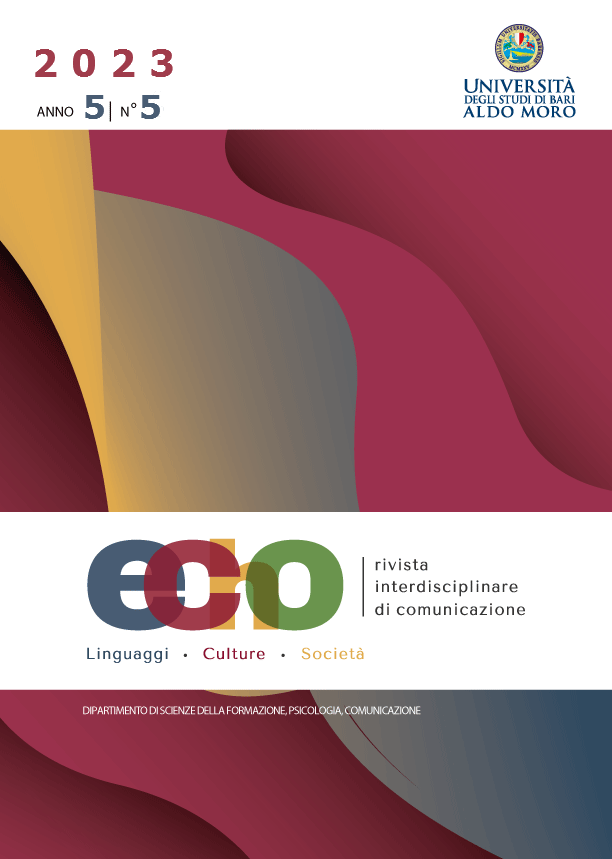Les stratégies discursives à l’œuvre dans le discours institutionnel sur la migration: le cas des noms propres au sein du profil twitter du Ministère de l’Immigration, la Francisation et l’Intégration au Québec
DOI:
https://doi.org/10.15162/2704-8659/1888Parole chiave:
Corpus-assisted discourse analysis, immigration, Twitter, textometry, press discourse analysis, QuébecAbstract
Institutional discourse, defined as any discourse issued by an entity with an official position within the state apparatus, has specific discursive characteristics. The presence of official institutional profiles on social networks stimulates the analysis of forms of enunciation in search of discursive strategies influenced by the medium. Our contribution examines the Twitter profile of the Ministère de l'Immigration, de la Francisation et de l'Intégration du Québec (MIFI), from which we extracted a corpus of around 3,000 statements that we analysed using the methodology of corpus-assisted discourse analysis, in search of syntactic and lexical-semantic structures. The results of our analysis, which is mainly qualitative, highlight the discursive role of the enunciator, which varies according to the typology of the utterances: it fulfils an assistance function in the sub-corpus of comments and a socio-cultural amplification function in the sub-corpus of retweets. More specifically, for the tweets sub-corpus (considered as the first production utterances), we examined the use of fictitious proper names to identify the discourse strategies employing them. We have identified a discursive strategy of training narrative and a discursive strategy of testimony: in the latter case, there are differences when the fictitious proper noun designates a member of the host community as opposed to a member of the host community.








